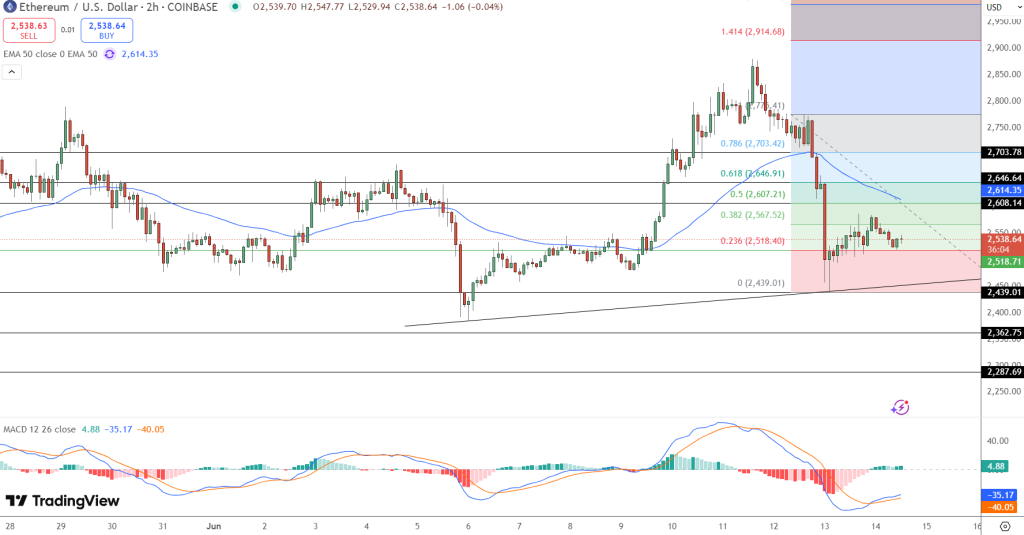Federal Reserve Board Chairman Jerome Powell speaks during a news conference on September 20, … [+]
Getty Images
The Federal Reserve’s September 2023 decision not to change interest rates highlights two problems in monetary policy: time lags and uncertainty of economic models and forecasts. They try to keep inflation low and employment high, but their job is inherently difficult.
In Jerome Powell’s press conference, he mentioned the Fed’s attention to time lags in monetary policy as well as this telling statement: “We have covered a lot of ground, and the full effects of our tightening have yet to be felt.”
As a rough rule of thumb, the time lag between monetary policy and changes in employment, production and income is about one year. That’s an oversimplification, but a useful one. The actual pattern is for small initial effects, gradually increasing to a peak effect, and then dwindling down to zero. That interacts with the gradual implementation of Fed policy. They began in March 2022 with a single quarter percentage point increase in the Federal Funds rate. Later that year they did several three-quarter point moves.
But time lags, as Milton Friedman observed, are “long and variable.” So at any moment in time, the Fed has had some impact already, plus some impact yet to come. But nobody knows for sure the magnitude of the future impacts. That argues for humility about our knowledge of just what the best policy is.
Chair Powell in answering reporters’ questions also emphasized “these are highly uncertain forecasts.” That is not a criticism of the forecasters, he pointed out, but of the difficulty of the task. We assess the impact of monetary policy on the economy by looking at past cases. But those past cases were in a different time. The economy evolves in many ways, some that we understand and some that we don’t. In the 1970s and ‘80s, international trade played a smaller role, and the ratio of goods production to services production was higher. These are some of the obvious changes, but there are probably other changes not so obvious. Perhaps we should not gauge current policy using older business cycles. But since the 1982 recession, there have only been five periods of Fed tightening. That’s a pretty small sample.
In addition to the gradual evolution of the economy, every period has unique occurrences. The Fed’s tightening in 1988-89 coincided with the collapse of the savings and loan industry and shortly thereafter the First Gulf War. The tightening in 1999-2000 came with the dot-com stock collapse, followed shortly thereafter by the 9/11 attacks. Figuring out the pure effects of monetary policy is difficult when other big changes are going on.
A reporter at that press conference also asked about the quality of economic data if the government goes into shutdown. The good news is that we have more non-government data sources than ever before. Examples include jobs information from ADP, housing information from Zillow, apartment vacancy and rents from ApartmentList.com. In today’s data-connected world, many other businesses produce data for public consumption as part of their marketing.
The bad news is that even when the government is up and running, our economic data are soft. To get prompt reports on quarterly Gross Domestic Product, many components come from just one or two months’ data. The closely watched employment report counts jobs based partly on samples that are then extrapolated to the entire universe of businesses. But in real time, we don’t know the size of that entire universe. New businesses are started, old ones close, so going from the sample to an estimate of the entire business world is a guess. This reality is not a criticism of the government’s statistical agencies. The people there are trying hard, subject to substantial practical difficulties. In many conversations with them, I’ve found them to be very knowledgeable and helpful. But unless the government demands all transactions to be reported to statistical agencies in real time, our information will lag, and monetary policy will be that much harder.
We cannot expect fine-tuning from the Federal Reserve. They certainly have made some unforced errors, including the excessive stimulus in 2020 and the delay in tightening. The Fed also implemented in 2020 a new policy structure that almost guarantees excessive inflation. But even without these mistakes, the Fed has a very difficult job. We should hope for success in a “sort of ballpark” way, but not great precision, ever. So we’ll sometimes experience recessions or inflation that could have been prevented.
Credit: Source link











